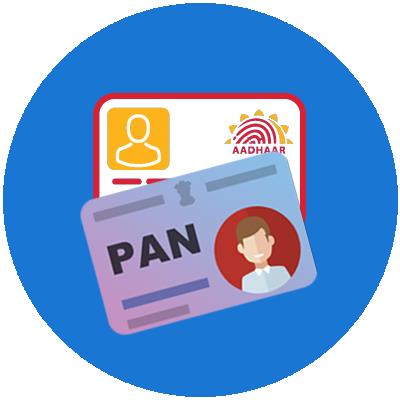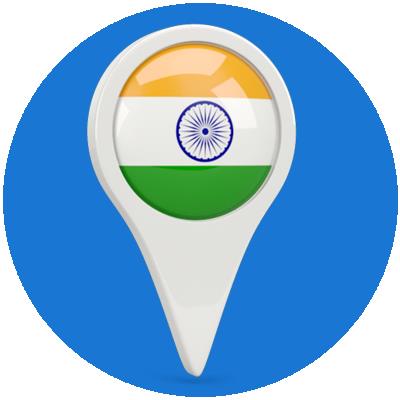Apply Now!
Basic Eligibility Criteria
 Above 18 Years of Age
Above 18 Years of Age Aadhar Card , Voter ID / Driving License and PAN Card
Aadhar Card , Voter ID / Driving License and PAN Card Resident of India
Resident of IndiaSAVINGS ACCOUNT
Savings Account is the most basic kind of banking product/instrument commonly used by the individuals to deposit cash in a safer and secured way. Savings accounts are opened by banks of both government and private nature and financial institutions. It is treated as the safest way to save the hard-earned money and earn interest over that money. The interest earned is calculated quarterly in almost all kinds of Savings Account. Anyone can deposit his/her money through cash deposit/ cheque, online transfers like IMPS, NEFT, RTGS or UPI.
You can access your savings account online as well and do monetary transactions there only. You can also withdraw the money through directly visiting the bank, cheque encashing, ATM withdrawal via debit card of the same savings account. Opening a savings account is easy but maintaining it requires patient. You need to maintain the minimum amount limit in that account to avoid any penalty or fee.
TYPES OF SAVING ACCOUNT
Depending upon different criteria like age, requirements, transaction track, there comes an array of options for savings account from different banks and finance institutions. As the competition is high, almost all the banks offer benefits and attractive features attached to the account. In India, following are the types of savings accounts which are commonly seen:
- Basic Savings Account: Basic Savings Account or Regular Savings Account generally comes with basic or minimum features and offers basic interest rates for the amount that you deposit in your savings account. We advise you to maintain basic limit/ minimum amount in your account to avoid any penalty or charge deduction.
- Zero Balance Savings Account: As the name suggests, Zero Balance Savings Account has the liberty to keep the account maintained without any minimum limit or balance. You just have to submit your KYC details along with your ADHAAR details to open a Zero Balance Account easily. Also, one can open it by simply applying online on Bankingontips.com.
- Salary Account: If you are a salaried individual, you are eligible for opening this kind of salary account. The companies directly transfer your monthly salary into your salary account easily. Also, the best feature of this account is this is automatically a zero balance savings account which comes with no cap of minimum balance criteria. If you have left your job and your salary no more comes into your savings account, the salary account itself converts into basic savings account and you either have to maintain the minimum limit or close the account.
In case you have switched your job, you have options to continue that account if your company allows or to discontinue it by closing or to continue it as a regular/basic savings account.
BENEFITS OF SAVINGS ACCOUNT
Savings Account itself says that ‘save-in-account’. With this, your habit of saving hard earned money is cultivated. There is a list of benefits that come alongside opening a savings account:
- Good interest rates varying from bank to bank on an average of 3.5%-7%
- Facilities of online transfers and transactions through RTGS, NEFT, IMPS etc.
- Hassle free cash withdrawal through ATMs of particular banks via entitles/authorized debit cards
- Authorized cheque books issued on your name for safeguarding money security
- Secured Account Number
- Unlimited liberty of cash deposits (changes as per new government rules)
- Direct linkage of EMI/RD/Loan transfers
ELIGIBILITY CRITERIA FOR OPENING SAVINGS ACCOUNT
There are no strict eligibility criteria to open a savings account of any bank as there is no income or occupational tracks to be presented. The important eligibility conforms that:
- You are an Indian Citizen, NRI or Foreign National staying in the country, as defined in the Constitution
- Your minimum age should be 18 years. You have to be an adult for a savings account. Though, parents/guardians open a savings account for their children/minors for future savings
DOCUMENTS REQUIRED TO OPEN A SAVINGS ACCOUNT
Although you can open a savings account without any obstacle but there are certain important details you should know at the time of filling online application for savings account opening. This is known as eKYC. The options for KYC update is available on the website when you apply for online account opening. Enumerated are the most vital documents:
- AADHAAR: Keep you AADHAAR Card number handy to furnish it on the time of savings account’s online application.
- PAN: PAN is the Permanent Account Number which is your most important financial identity needed on priority whenever any monetary service is availed by you. It is also considered as an official ID proof.
Other than this, if you physically open a savings account, you need the following:
- ID Proof: It can be your Voter’s ID Card, Passport, Driving License, PAN, AADHAAR etc.
- Local Address Proof: This means the address proof of where you live and where you want to open the saving account should match. These can be your Bank Statement, Telephone/Electricity/Water bills, Rent Agreement etc.
RIGHT CHOICE FOR OPENING SAVINGS ACCOUNT
You should always do a keen research before applying to open a savings account or before making any other choice related to financial services. Savings account is not just meant to save your money but also to augment your earnings through various additional features and benefits like interest etc.
Interest Rate: The basic/minimum interest rate offered by most of the banks is 3.5% but most of the banks today offer high interest rates as much as 7% which depends on your savings accounts management/maintenance.
Minimum Balance: Maintaining minimum balance is the feature of regular savings account and breaching it causes deductions and penalties. So, if you are not able to maintain it, it is better for you to open a zero balance savings account to close any scope of paying extra charges.
Features & Deals: Today, features like net banking and mobile banking come easily with opening any kind of savings account, be it, Regular/Basic Savings Account, Salary Account or Zero Balance Savings Account. Along with that, cash deposit or withdrawal at doorstep, free personalized cheque books etc. With these facilities, it not necessary for you to visit the banks on regular basis. You can avail all the services of a savings account sitting at your home.
Personalized Debit Card is another additional feature or benefit coming along with opening a savings account. In today’s time, debit card is the key to so many attractive benefits like airport lounge access, dining privileges, cashbacks, movie tickets, travel tickets/bookings, shopping etc.
OPENING SAVINGS ACCOUNT THROUGH POST OFFICE
Yes, it possible to open a savings account in a Post Office. Following is the procedure to open it easily in any branch of Indian Post Office:
- The savings account opening fee is Rs. 20 which you need to pay at the time of account opening.
- In your savings account, you need to maintain the minimum of Rs. 500.
- If your savings account is without the facility of cheque book, the minimum balance to be maintained is Rs. 50.
- The amount you save in your savings account can be effortlessly transferred into any Post Office across the nation.
- You can open your 10 years old children’s/minor’s savings account being the co-borrower/parent/guardian.
- Individual or Joint Accounts can also be opened.
Now-a-days, interest rate on Post Office Savings Account is 4% which is subject to changes as per government rules
FAQs
Savings account is the most basic kind of bank account where the bank authorizes you to keep your saved money for an unlimited period of time.
Savings account is the simplest way to keep your saved money safe for your immediate needs in life. You do not know the unpredictability coming across in life, so, it is better to save money in the most suitable of bank accounts, known as savings account.
You need to consider the following before opening a savings account for yourself:
- Interest rate on the money deposited
- Minimum balance limit
- Customer assistance
- Branch location etc.
Following are the types of savings account:
- Joint Account
- Woman’s Savings Account
- Senior Citizens’ Savings Account
- Minors’ Account
- Salary Account
Enumerated are the essential documents you need before applying for a savings account:
- Identity Proof
- Residence Proof
- AADHAAR
- Passport sized photograph
- Duly filled application form
Generally, there are no restrictions in regards of opening a savings account like income or age but there are minimum balance amount limits you need to maintain.
This differs from bank to bank. Generally, it varies from Rs 0 to Rs. 25000 for regular customers and up to Rs. 200000 or higher for premium or privileged customers.
You can think this way, either buying a home is beneficial or not? Surely, it is. Any property either brought with home loan or not, is definitely a good investment as far as long term benefits are thought upon.
Normally, not every bank charges its customers with penalty if not maintaining minimum balance and it is according to the RBI guidelines. You must check the recent norms in case of current updates of the governmental banking rules.
Usually, the interest rate is 4-7% per annum, however, SBI offers 4% on its deposits whereas private banks Yes Bank, RBL Bank & Kotak Bank offer as much as 6%.
The earned interest on the amount deposited on the savings account is credited in your account on half yearly basis while it is calculated daily or monthly.
Yes, it is possible to open a joint savings account if you are over 18 years of age. In case of minors, parents or guardians will be the authorized signatory of the account.
According to the RBI guidelines, the savings account becomes dormant if the account holder does not do any transactions for a continuous two years of span.
If you want to activate a dormant savings account, you need to:
- Personally contact your account branch
- Written request for account re-activation
- Current identity proof and residence proof
- Commence a transaction through cash or cheque to re-activate your account
You can pay money into your savings account through:
- Cheque/Cash
- Net-banking via NEFT/RTGS
- IMPS or Phone banking

